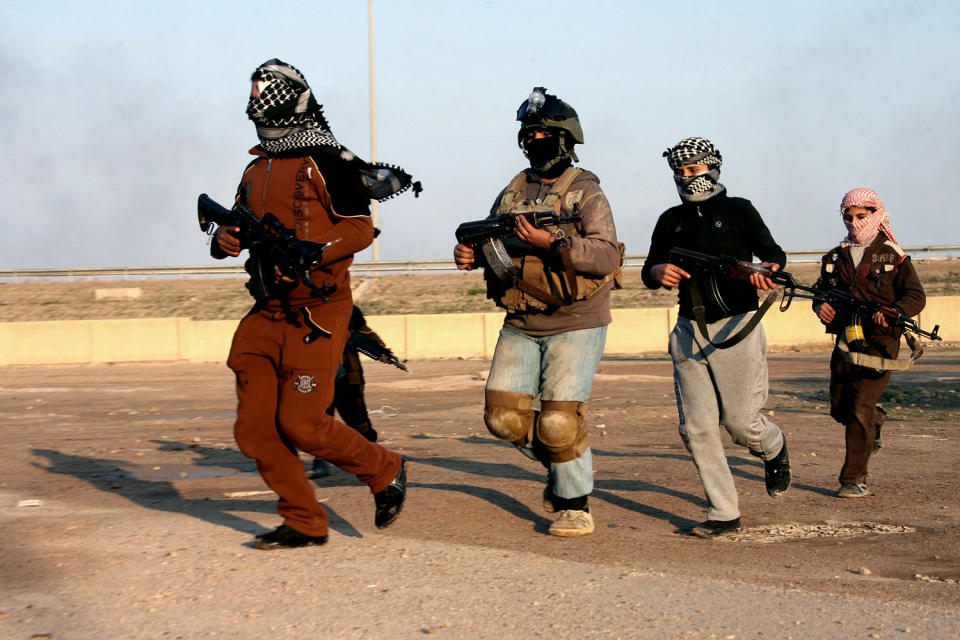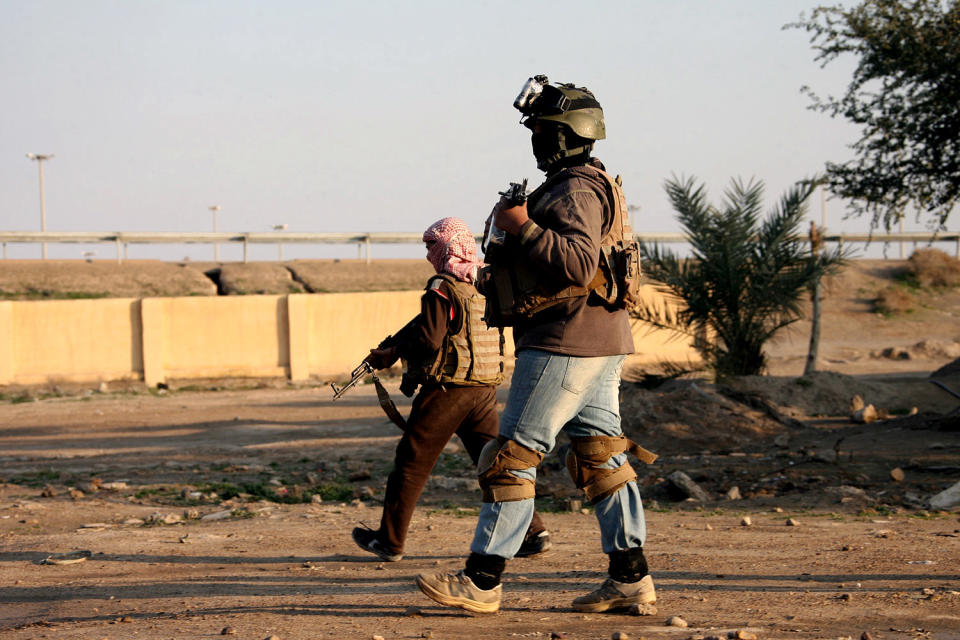Clashes in Iraq's embattled Anbar province kill 5
BAGHDAD (AP) — A suicide bomber attacked a gathering of an anti-Al-Qaida militia as security forces and extremists fought in Iraq's contested Anbar province, violence that killed at least five people Friday, officials said.
Iraqi forces and allied Sunni tribesmen have been fighting for weeks to recapture key territories overrun by al-Qaida militants in the country's Sunni-dominated Anbar province, including its two main cities, Fallujah and parts of the provincial capital, Ramadi.
The Islamic State of Iraq and the Levant, al-Qaida's Iraqi branch, seized the areas after security forces pulled out to appease angry Sunnis following the arrest of a Sunni lawmaker and the dismantling of Sunni sit-in protesting the Shiite-led government.
Friday, the suicide bomber detonated his explosives at the militia gathering in Ramadi, killing three and wounding four, police said. A battle between security forces and al-Qaida fighters in Fallujah killed two civilians caught in the crossfire, hospital officials said.
Meanwhile, army officers said sporadic clashes erupted between Iraqi soldiers and the militants in the village of al-Bubali, between Fallujah and Ramadi.
All officials spoke on condition of anonymity because they were not authorized to speak to journalists.
Meanwhile, Anbar provincial spokesman Dhari al-Rishawi said that al-Qaida gunmen apparently kidnapped Fallujah's new mayor, who was appointed to his post only one week ago.
Al-Rishawi said that the Mayor Zabar al-Arsan disappeared three days ago in Fallujah and his whereabouts are still unknown.
Anbar's deputy governor, Dhari al-Arsan, told The Associated Press that dozens of families have fled the Fallujah following the clashes early Friday.
"Fallujah residents are living in great fear due to the ongoing clashes and shelling, al-Arsan said.
More than 11,000 families already have fled their houses in Fallujah and Ramadi to either nearby areas or outside Anbar province, according to the United Nations. Some of these families have ended up in abandoned buildings, schools and half-built houses while others ended up with relatives.
___
Associated Press writer Qassim Abdul-Zahra contributed to this report.


